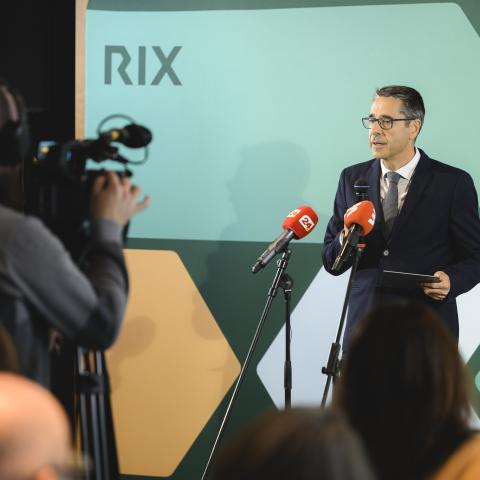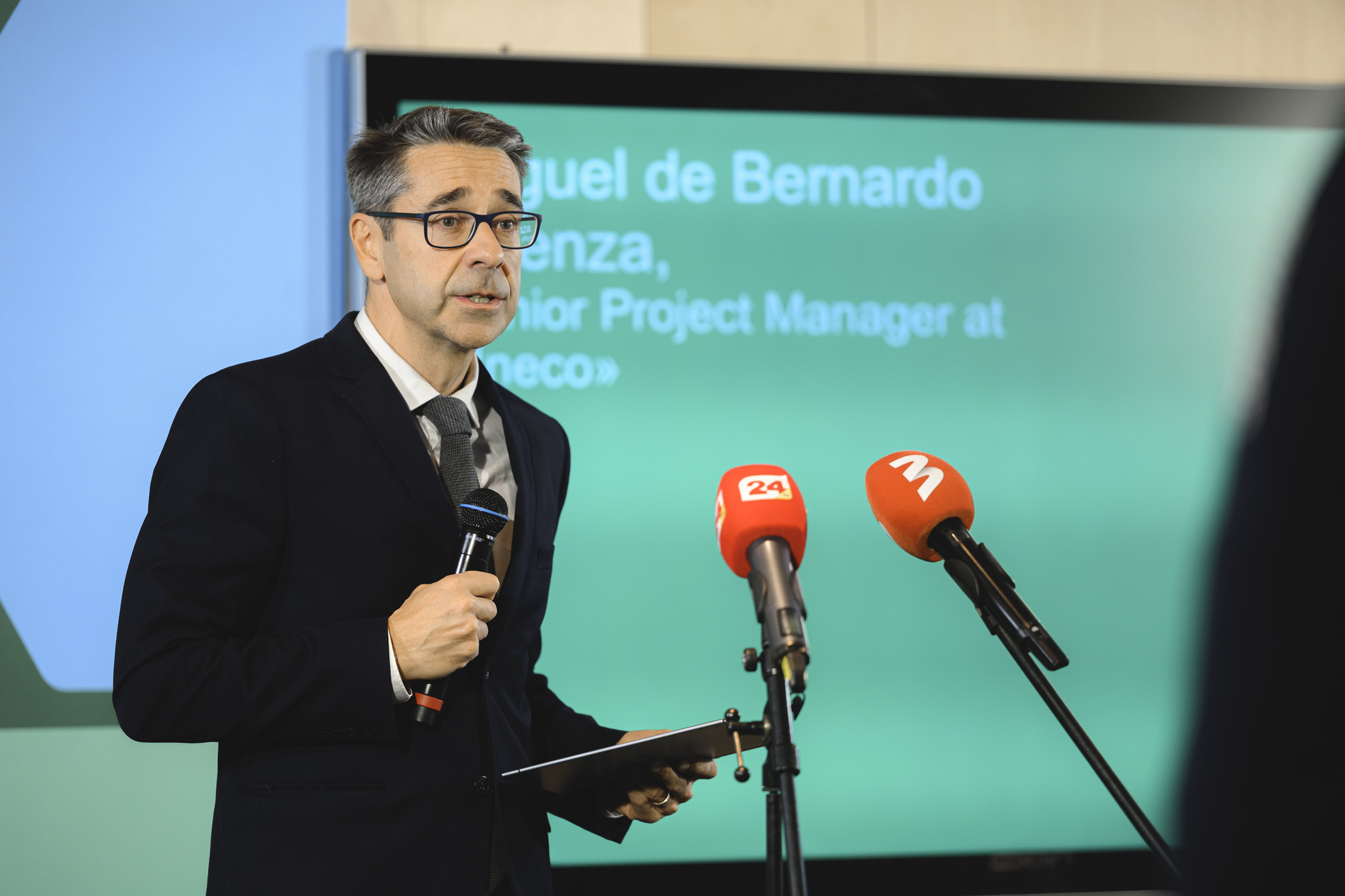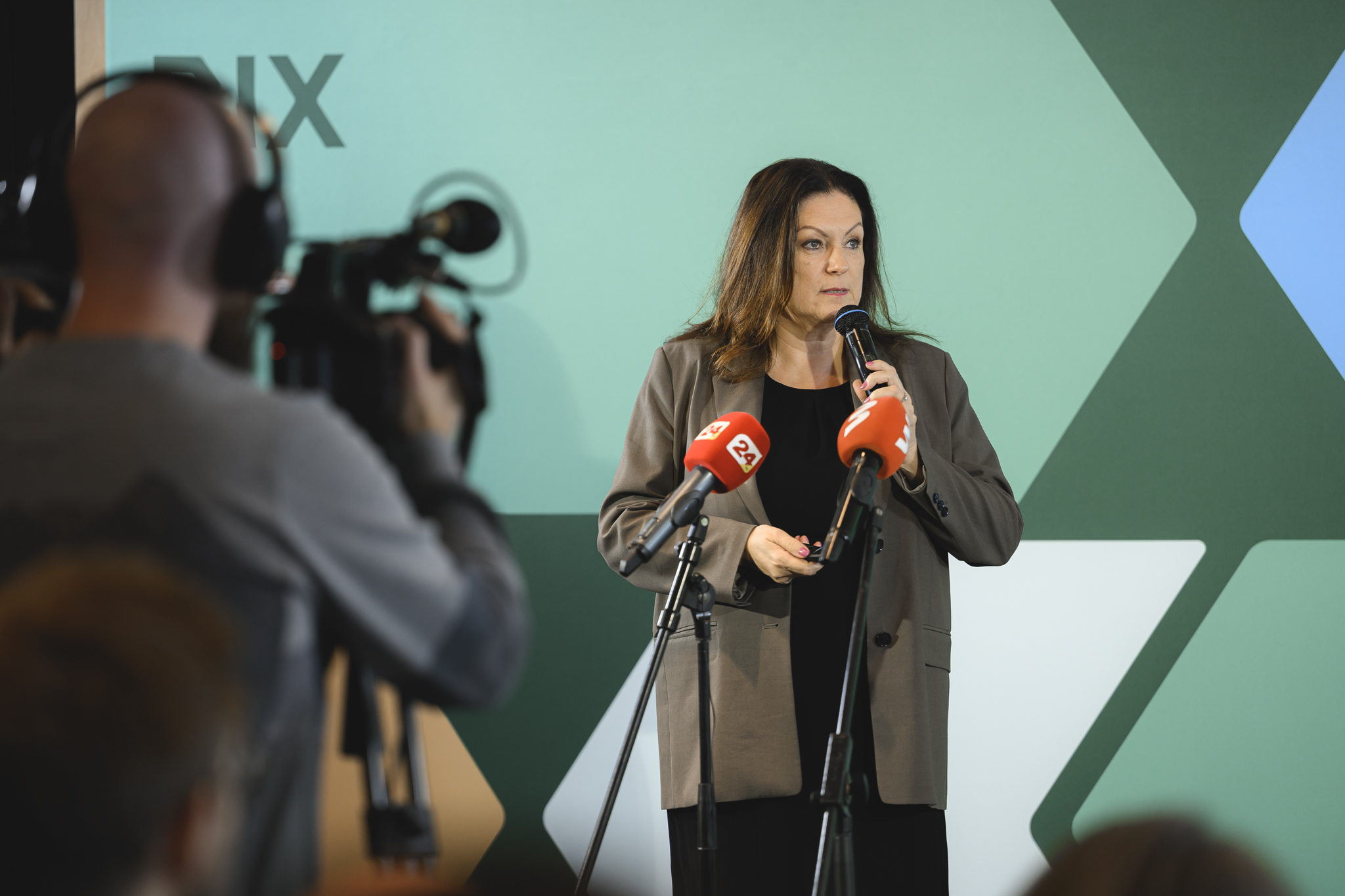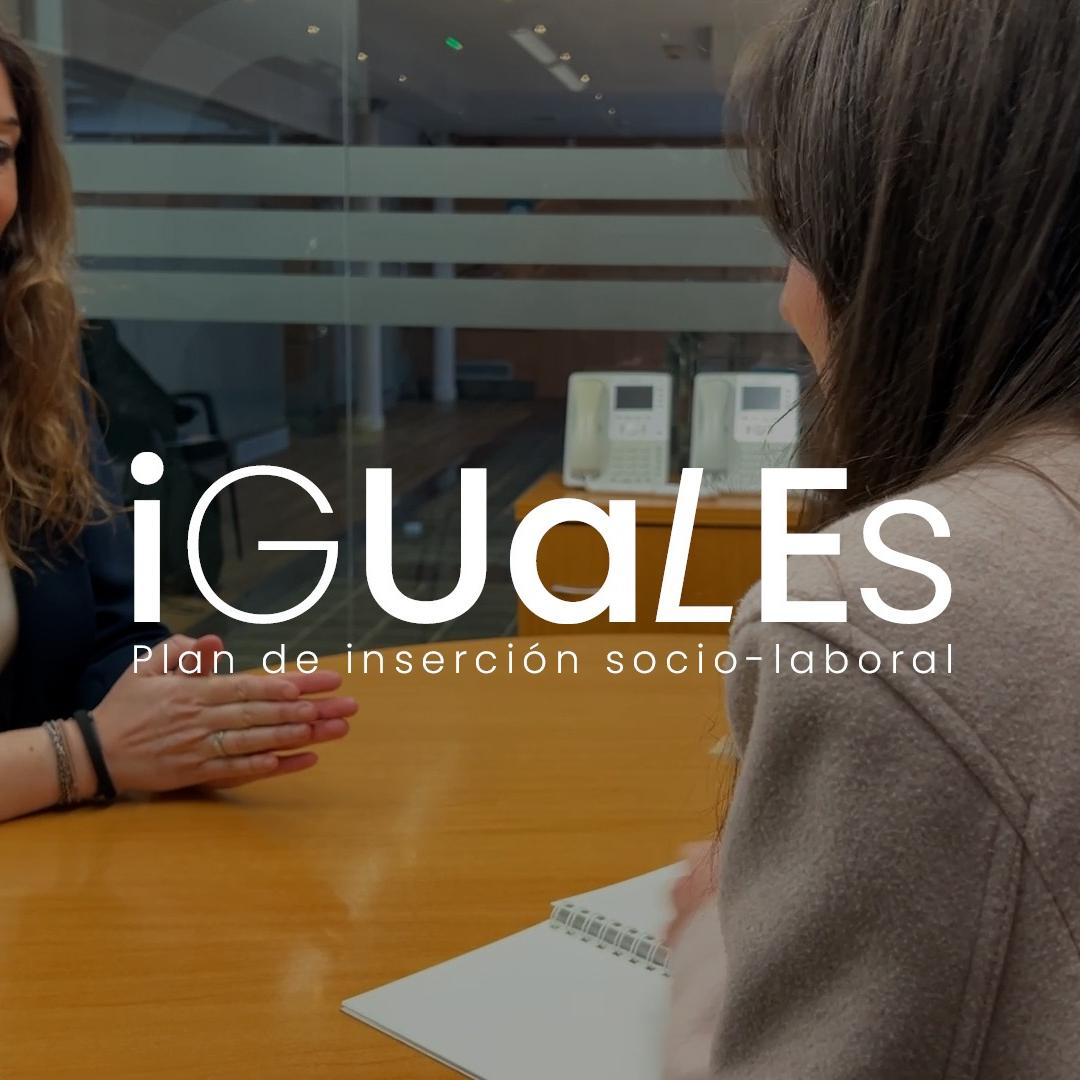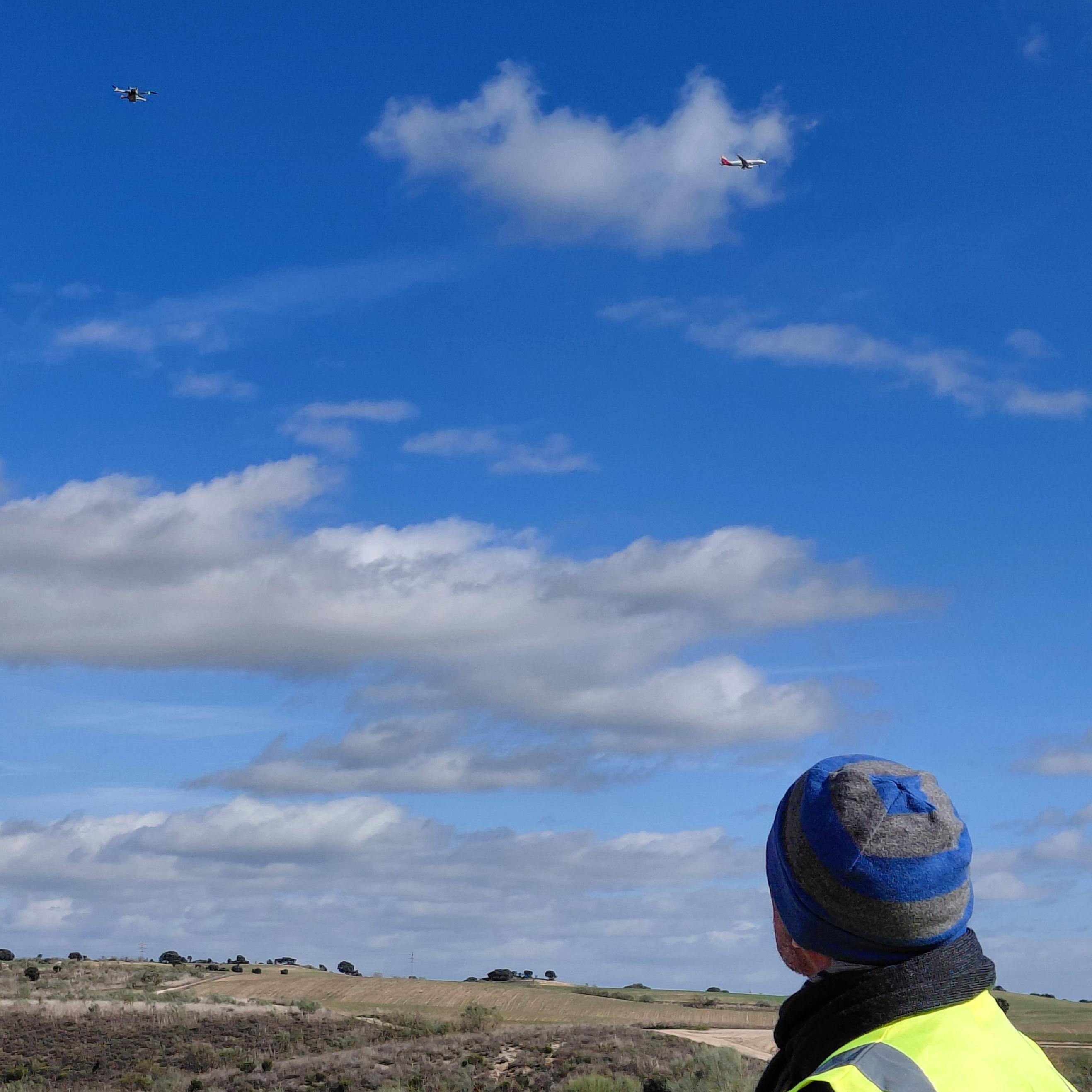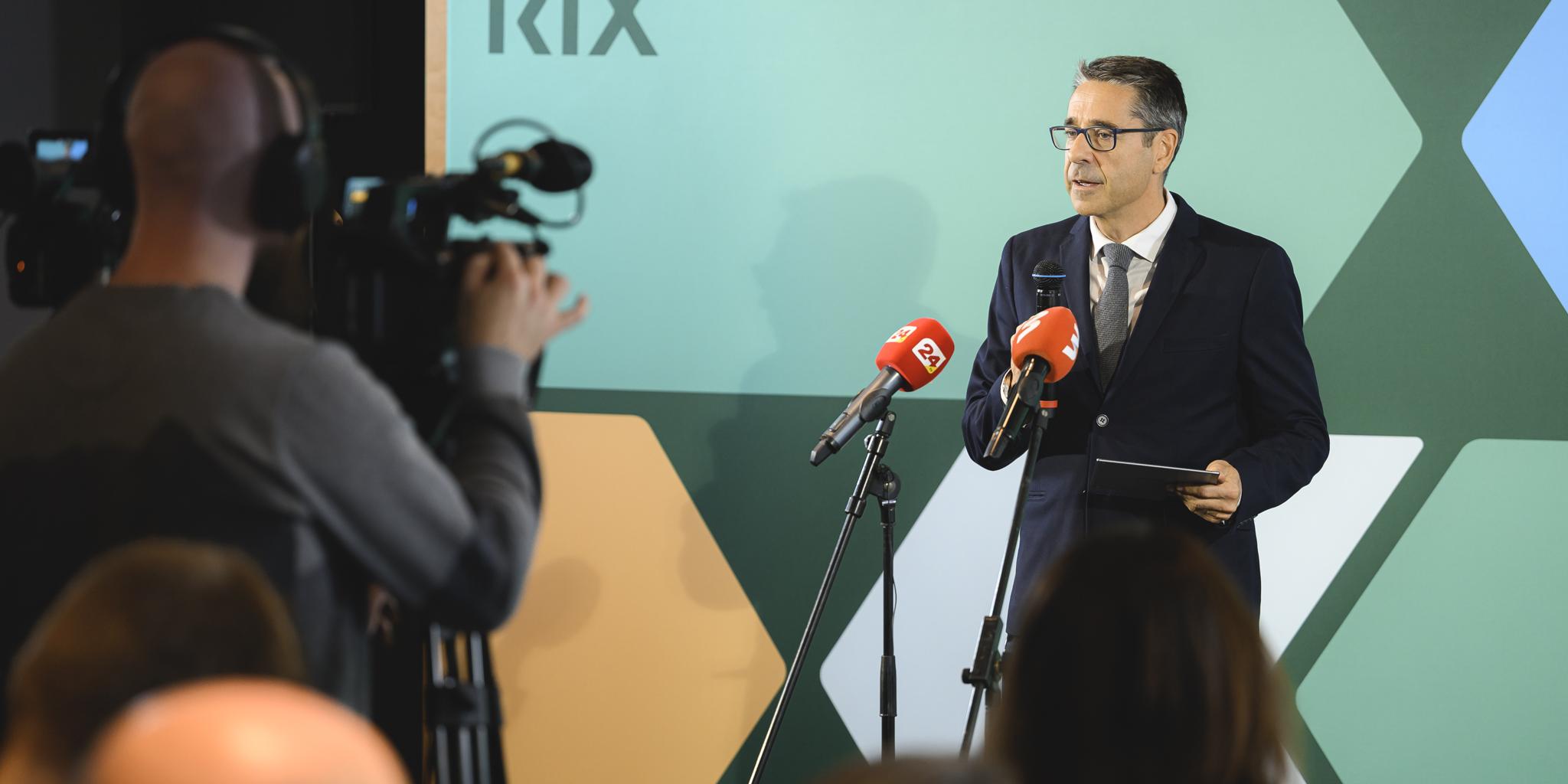
Miguel de Bernardo speaking at the Master Plan presentation
The Riga International Airport (RIX) board of directors announced on Monday the official start of the public information period for the Riga Airport Master Plan 2025-2050. This strategic project has been developed by an international consortium led by Ineco, in collaboration with Latvian firms Venteko and Reģionālie projekti.
With a planning horizon of 25 years, the Master Plan defines the future vision of the airport to position it as a logistics and mobility centre of reference in northern Europe. Ineco has been responsible for leading the technical preparation of the document and the associated Environmental Impact Study, consolidating its role as an international consultancy specialising in the development of sustainable airport infrastructures. The work includes the analysis of current and future capacity, traffic forecasts, investment programmes and the design of development scenarios that allow the infrastructures to be adapted to the air mobility needs of the coming decades.
Miguel de Bernardo, planning and sustainable mobility manager at Ineco, participated in the presentation of the Master Plan, where he shared the company's "pride" in "leading this Master Plan, which will not only increase the capacity and efficiency of Riga Airport, but will also strengthen its position as a strategic node in the European transport network".
The project includes the modernisation and expansion of the passenger terminal, the construction of a new south pier, improvements to the manoeuvring areas with new taxiways and aprons, as well as a direct connection to the high-speed rail line Rail Baltica, currently under development. These actions will significantly improve operational capacity and the passenger experience, integrating the airport into the trans-European transport network.
Public Consultation
Another key component of the plan is the development of RIX Airport City, a new multifunctional district with business, hotel and service spaces, aimed at attracting investment and generating new economic opportunities. The entire project is aligned with the principles of sustainability and energy transition, including proposals for the integration of renewable energy, electric mobility and infrastructure adapted to future technologies such as hydrogen.
The Master Plan is undergoing a strategic environmental impact assessment that includes public participation. The public information process, open from Monday, will allow Latvian society to learn about the details of the plan and to comment on it until December

